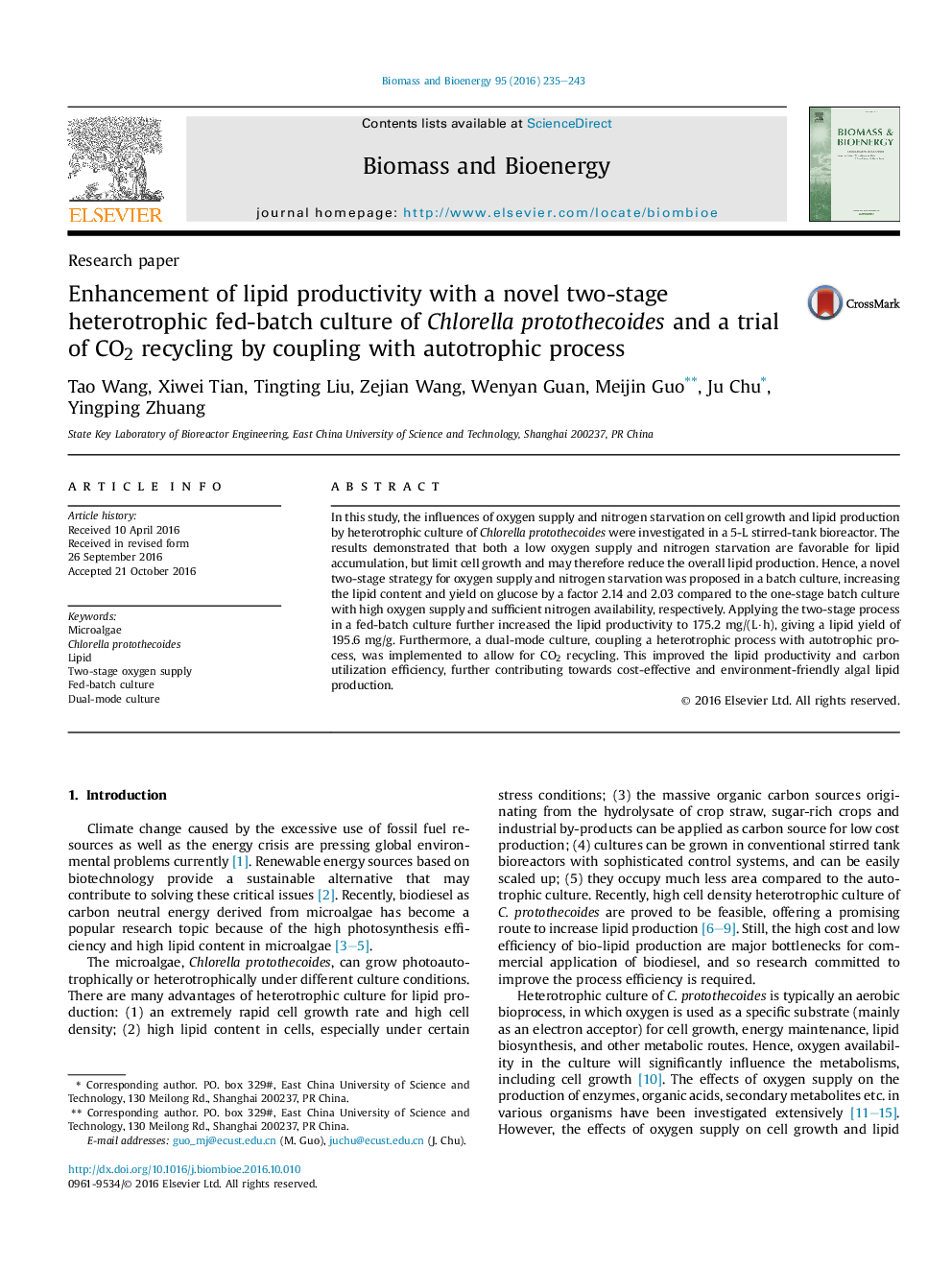| Article ID | Journal | Published Year | Pages | File Type |
|---|---|---|---|---|
| 4996375 | Biomass and Bioenergy | 2016 | 9 Pages |
Abstract
In this study, the influences of oxygen supply and nitrogen starvation on cell growth and lipid production by heterotrophic culture of Chlorella protothecoides were investigated in a 5-L stirred-tank bioreactor. The results demonstrated that both a low oxygen supply and nitrogen starvation are favorable for lipid accumulation, but limit cell growth and may therefore reduce the overall lipid production. Hence, a novel two-stage strategy for oxygen supply and nitrogen starvation was proposed in a batch culture, increasing the lipid content and yield on glucose by a factor 2.14 and 2.03 compared to the one-stage batch culture with high oxygen supply and sufficient nitrogen availability, respectively. Applying the two-stage process in a fed-batch culture further increased the lipid productivity to 175.2 mg/(L·h), giving a lipid yield of 195.6 mg/g. Furthermore, a dual-mode culture, coupling a heterotrophic process with autotrophic process, was implemented to allow for CO2 recycling. This improved the lipid productivity and carbon utilization efficiency, further contributing towards cost-effective and environment-friendly algal lipid production.
Related Topics
Physical Sciences and Engineering
Chemical Engineering
Process Chemistry and Technology
Authors
Tao Wang, Xiwei Tian, Tingting Liu, Zejian Wang, Wenyan Guan, Meijin Guo, Ju Chu, Yingping Zhuang,
